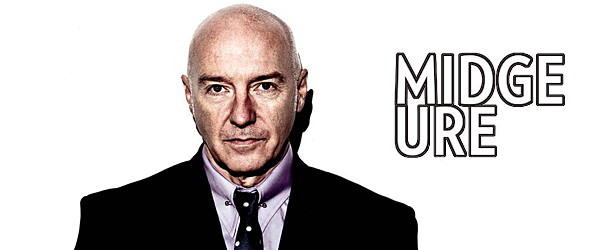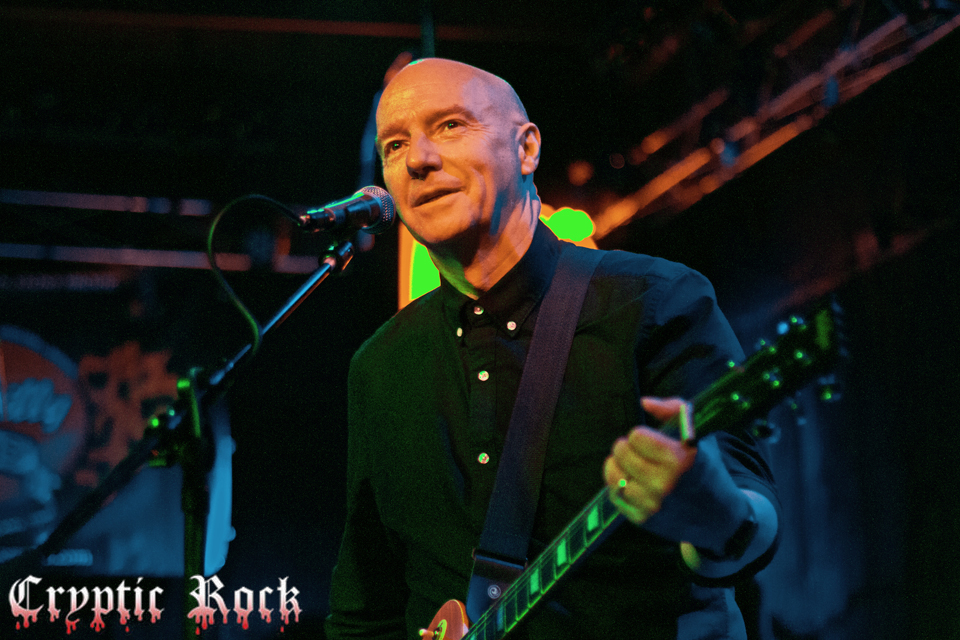Music can be salvation for some, a reason for being, a viable outlet of self-expression unlike any other. For Scottish Musician Midge Ure, music has always been a key part of who he is, bouncing around bands in his early years, looking for the right fit. Commonly associated with his time with Rich Kids and Visage, Ure’s most proud moments as a musician came when joining the Synthpop band Ultravox. Assisting in bringing the band back from the brink, Ultravox, with Ure on guitar/vocals, would go on to major success following the release of 1980’s Vienna record. A partnership that would see the band attain a slew of hit singles around Europe, Ure would also branch off into a strong solo career, and after some personal battles, returned with his album Fragile in 2014. Now actively touring regularly and in the creative swing once again, Ure is prime for many more years of music. Recently we caught up with the humble musician to talk about his journey, Ultravox, writing music, the story behind Live Aid, and much more.
CrypticRock.com – You have quite an amazing career in music from your time with Rich Kids, to Visage, Thin Lizzy, and Ultravox. Looking back in hindsight, what have these varieties of experiences been like for you?
Midge Ure – It’s a bizarre journey. On paper, it looks like I’m some dreadful musical tart who will do just about anything, but that’s not quite how it was. The Rich Kids was late 1977-1978 in the throes of the whole Punk thing and I started listening to music coming out of Europe. I wanted a synthesizer, I wanted to merge this new technology with traditional Rock instrumentation. I bought a synthesizer and brought it into the band, which instantly broke the band up. Half the band loved it and half the band hated it. Half the band who liked it went on to put the band together with all their favorite musicians, and that was Visage. That of course featured Billy Currie, the keyboard player with Ultravox, and during the Visage recordings, I watched Ultravox fall apart and ended up joining the band, which was just fantastic.
The Thin Lizzy bit was only a hiccup in the middle, but I was never a Thin Lizzy member. When I had just joined Ultravox, Lizzy went on tour as being special guest for Journey and I knew Philip, the singer. He called me up from America and said Gary Moore isn’t in the band anymore, can you fly out tomorrow and finish the tour with us? I had never been to America so I just jumped at the chance. Philip gave me the chance to talk about the fact that I joined Ultravox and that they were still in existence; not many people in America were particularly interested at that time. It was a strange and wonderful path.
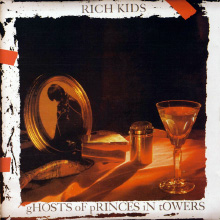
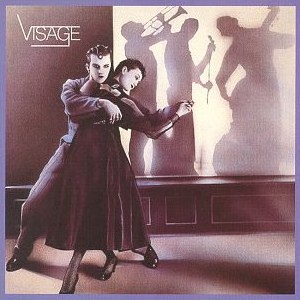
CrypticRock.com – Absolutely, it has to be an amazing experience to have such a variety like that. With all these wonderful projects you have been a part of, perhaps the one people most commonly associate you with is Ultravox. When you joined the band back in 1979, your entrance re-energized the act. Do you think that was something you were prepared to take on at that point in your music career?
Midge Ure – Oh, god no. I think naivety is a wonderful thing. I joined the band because I loved what Ultravox was doing at the time just prior to them breaking up. I used to do a little bit of DJing; we used to play “Slow Motion,” “Quiet Men,” and “Hiroshima Mon Amour,” old Ultravox tunes, and they were just on the verge of doing something brilliant. When I joined the band, on paper, I think you would have run a mile. They owed the record company a fortune, they had just been dropped when they came back from tour, a broken band. The moment we made a noise it was just fantastic, you couldn’t not want to be in that band because this combination of Rock guitars and synthesizers was just fantastic, it was wonderful. I didn’t go in there with a view to revitalizing the band, I saw them as incredibly exciting. The fact that it transpired, that things went really well for us with the Vienna (1980) album, wasn’t even in the cards.
CrypticRock.com – Yes, these things just happen, and they happen for a good reason; everything worked out well. With Ultravox, you did release an eleventh studio album, entitled Brill!ant, in 2012. It was in fact the first Ultravox studio record in 18 years and the first to feature you since 1986’s U-Vox. Were you excited to go back into the studio and record new Ultravox material, and four years removed from the album release, are you satisfied with it?
Midge Ure – It was scary. I think we were very aware, we hadn’t planned on making a record at all. We had got back together just to go on tour and play those songs one more time with no intention of doing anything beyond that. Of course, these things grow and people responded incredibly well to the live shows and we were offered a record deal. Which is just ludicrous; a bunch of men in their fifties and sixties get offered a record deal. I turned it down. When you are offered something like that you start discussing it and talking about it, the what ifs. If we were to, how would we, where would we, how could we do it, and before you know it, you are kind of committed to doing it.
We did it. We started dipping our toe in the writing areas, but without having signed a deal. We just wanted to see if it worked because we didn’t want to do something where we were committed to putting out whatever came out. After 25 years apart, who knows what was going to come out? Weirdly, there it was, that sound, that noise, that creativity, that spark was still there like it had never gone away. It was a real eye-opener to make an album after that huge gap and still find that it was worth doing. There was something worth it there, something worth perusing.


CrypticRock.com – Yes, it worked out well. The record came out great. It is four years removed from the record now, that was 2012, and as you stated, you did some touring with Ultravox as well. Do you foresee another Ultravox album soon, or was that it for the band?
Midge Ure – I think it was quite possibly the icing on the cake. The idea was, we hadn’t spoken for a long time, you don’t phone up your ex and have a chat (laughs). The band is a more complicated relationship than that, we hadn’t really spoken much over the period. When we did get back together to find that we still had a lot in common and we enjoyed doing it, we decided that we had opened some doors that we never dreamed of opening again and we would leave Ultravox sitting on a shelf dormant, just waiting.
If an interesting project came along, we might consider it; a movie soundtrack, writing music for theater, or something that would inspire us. We certainly didn’t want to get back on the treadmill and make an album every year. I was in my late fifties, the guys were in their sixties, and we couldn’t pretend that we were going to be young guns going out and being in a full-time band. We were also committed to doing all our own individual solo projects, two of the guys have jobs. They’ve gone to the dark side (laughs), they actually work, and it’s very difficult for them to get the time off to go be in a band. We decided we would just leave it sitting there, but that was over 2 years ago now last that we did any live performance. I don’t know if Ultravox will ever rear its head again.
CrypticRock.com – Understood, it was great to have that record, if it is the final hurrah, and you certainly have kept yourself busy through the years. Since 1985, you have released quite a few solo albums including 2014’s Fragile. It is an extremely well-composed record with a very mature and beautiful sound. There is certainly a lot of emotion in the tracks. What was the writing and recording process like for you on this album?
Midge Ure – I am very proud of that record. I am not proud of the fact that it took 10 years to make, and that’s not 10 years of working on it. I lost my way somewhere along the line, I got myself in trouble with a bit of alcohol. I was a kind of lost soul. When I finally pulled myself out of that, I had a wealth of things, and life experiences to write about. I set about making an album that just said everything that I was feeling, living the experiences. I think that was a huge realization; for years, I felt as if I had been carrying the weight of the world on my shoulders. To find out that I was just human like everybody else was a bit of a shock; that I could crack and crumble just the same as anybody else, so I wrote about that. It was an incredibly brutally, honest record, but as you say, I wanted it to be beautiful, fragile, to sound like it was going to fall apart. I wanted it to have an honesty about it that some of my previous records didn’t have. I am very proud of it. I certainly don’t want to take another 10 years to do the next one. (laughs)
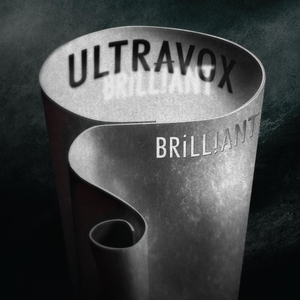
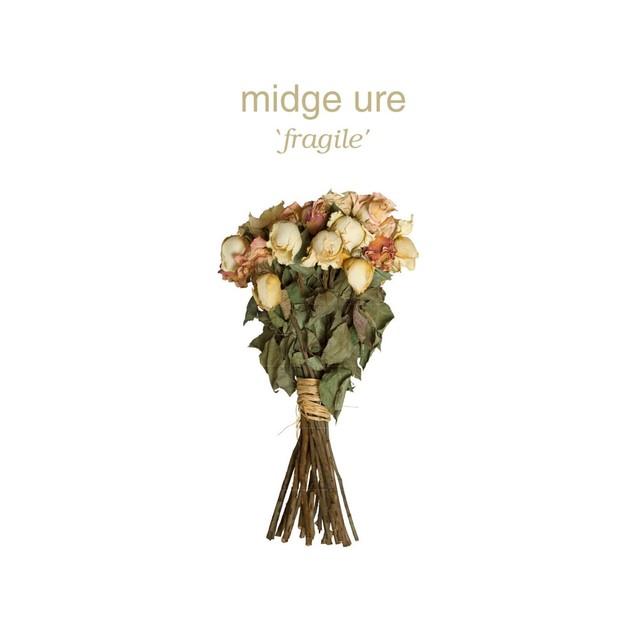
CrypticRock.com – Hopefully not. You have been working on soundtrack music and such. Do you have plans for doing another solo record in the forthcoming future?
Midge Ure – Yeah, I’ve already started. When I’m not touring I do a little bit of live work. I travel a lot, if you look at my website, I’m all over the place. When I am not traveling I am in the studio. I have my own facility, which I’ve always had. I am constantly hacking away on new pieces of music. I have various projects on the go, and at the same time, I recently was in a studio in the middle of Oxfordshire at a friend’s place working with him. When I go home, I’ve got my own project to work on, so yes, I will be doing something new. As to when it’s going to be finished and ready, I’m not quite sure yet. It’s in the pipeline.
CrypticRock.com – Excellent, that is exciting to hear. You are a very busy guy, you are always on the road. When you played on the acoustic Fragile Troubadour Tour in 2015, you were very honest about your music and kept it sincere. You connected with the audience with the music and what music should be all about. You have also seen a lot of change in the music industry through the years. What is your opinion of the state of the music world in 2016?
Midge Ure – The industry has changed a huge amount, which isn’t a bad thing necessarily. I think the shockwaves, the file sharing, and the Napsters, of the world that have been created have devastated certain parts of the industry. The tour that you saw, the Fragile Troubadour Tour, I set the entire tour up completely alone. I had no crew, I had no manager, no tour manager, nothing. It was me, a guitar, and a bunch of songs. I set that up specifically to document. I filmed the entire thing and I came back and turned it into a one-man-takes-on-America documentary simply to show young aspiring songwriters and musicians how difficult it is out there doing it.
I am reasonably established, I am not that well known in America, but in certain areas, people know who I am, so I am already a few rungs up the ladder. If you are going anywhere as a new artist it’s incredibly difficult to eke out a living doing that. New music is the lifeblood of the industry. I love to hear something come on the radio that excites me. It doesn’t happen very often, but when it does happen, it’s wonderful. You have to nurture that, you can’t just keep playing oldies. As much as my stuff gets played on the radio, which is lovely, you can’t keep playing that stuff because it doesn’t progress, it doesn’t move anywhere.
CrypticRock.com – Right, and while the internet is a blessing of course, it also can be a negative because there is such a plethora of artists out there. This is wonderful, but things can slip through the cracks. You can easily get lost in the shuffle, there is an over-saturation.
Midge Ure – Well absolutely, we do live in a time in the music industry where it’s very easy to get lost in the shuffle. It’s like a needle in a haystack, isn’t it? Everyone has access to the tools. Back in the day, if you wanted to make an album, you needed a huge advance. You needed a lot of money because studios were $1,000 a day, or whatever they were. Now you can do it on the laptop, we all have access to the facilities. We can all make a record if you have a little bit of knowledge and talent. Not even the talent, with a little bit of knowledge you can make something and put it on the internet. Now you have the problem of it’s up there, but how do you get people to find it? How do you point people towards it?
It’s a catch-22 situation where you can make the music, but you can’t find the audience. You can’t find an audience unless your music is successful, because you can’t get any gigs. It’s a really weird scenario, a double-edged sword, a poison chalice. In some instances, it’s fabulous because you can make a piece of music and instantly get it out there. That’s instant access for your followers to get, but if you don’t have followers, it’s just another piece of music floating around the internet. I suppose the downside of it, which again is a double-edged sword, is there is no filtering system, anyone can put anything up there. At least when there were labels and A&R people, it kind of filtered out the really bad stuff that never got shown. I am just imagining the air, surrounded by all this stuff, maybe 1% is worth hearing and the rest is just stuff, but there we go.
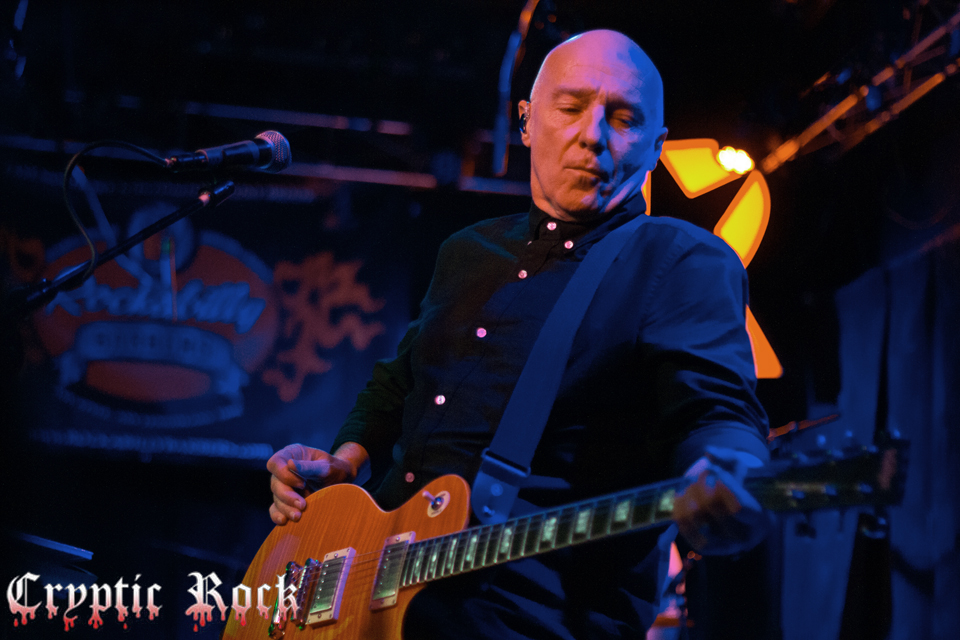
CrypticRock.com – It is so true. It can sort of get overwhelming for a consumer, in any capacity of life, whether it be music or film. It seems the way our lives are now, we are so bombarded with so much stuff that it is just coming at you from every direction.
Midge Ure – Yeah, that’s true. I don’t want to keep harking back, but that’s what my roots are. Back when I was consuming music before I was allowed to make it, music was the be-all and end-all. Watching whatever music you could see on television, listening to whatever you could get your hands on, we didn’t have the distractions or the hundreds of TV channels, music channels that you could switch on and watch 24 hours a day. We didn’t have mobiles with instant access to movies and TV and all of that, computer games or any of that. Your escape was music and it was incredibly important to everybody and I am not sure that importance is as much as it was back then. You do have all these facilities and stuff pulling you in different directions.
CrypticRock.com –Very true; a valid point that you bring up there. You recently returned to North America for some tour dates in 2016 and will be back again in 2017. This time around you are with a full electric band, what can fans expect from this tour?
Midge Ure – I’ve got a couple of musicians that I have worked with in the past, multi-instrumentalists, and although the core band is just drums, bass, and guitar, we have synthesizers and various bits and pieces. I am looking at doing some Ultravox things that I don’t play very often, or haven’t played very often in the past. Some things may be in the Vienna album that hasn’t had a live outing in America for a long time, we have a massive setlist. A lot of solo things, maybe a couple of cover things; David Bowie died this year, and I am toying with the idea of maybe putting a Bowie song, and some of the old Ultravox things, as well as the classics. You cannot go out and do Vienna as a three-piece without reworking it somehow, and to me that’s exciting. The idea of the challenge is exciting. Rather than just going out with my regular band and plugging and knowing exactly what it’s going to sound like, this is a challenge. It’s a good challenge though.
CrypticRock.com – Sounds very exciting, you want to keep things interesting, and you do not want to be doing the same thing over and over again.
Midge Ure – Yeah, I’ve got to keep it interesting for me, otherwise it just becomes painting by numbers, almost robotic. You know exactly what you are going to do and how it’s going to sound. With this, the exciting part is I don’t know how it’s going to go, I don’t know how I will start the song and I am not sure how we will finish it, but we will get there. I have faith in these guys’ abilities and faith in my ability to come up with interesting ideas. We have the material. I am not short of songs, so I have enough stuff there to delve into and make it interesting.
CrypticRock.com – Excellent, well it will be exciting to see when you come back around to the USA in January of 2017. You had mentioned wanting to work with synthesizers and mix it with guitars and such, what you did with Ultravox. Interestingly enough, the synthesizer was very popular in the late ’70s into the ’80s and then it kind of disappeared in the ’90s and the early ‘2000s, but now it is back. It seems like a lot of Alternative Rock bands are incorporating synthesizers, and a lot of Pop acts too. What do you think about the synthesizer coming back?
Midge Ure – I think it’s always been there, just maybe not in vogue for a while. You can’t think about dance music in the ’90s without thinking it’s all done with drum machines, synthesizers, and samples, because that’s how it was all created. It just wasn’t in the foreground, it wasn’t important during that decade, in particular, for guys to be standing behind banks of keyboards. It was more important for them to be standing with their headphones on and a record player, but it was the same thing. They are using technology to make music. Even though it wasn’t in the foreground, every studio you would go into would have a computer and synthesizer. The technology was being used in a slightly different way. Maybe now it’s cool to be seen, especially with retro synths, on stage with banks of keyboards again and sucking your cheeks in like we used to do back in the ’80s. (laughs)


CrypticRock.com – You are right. The technology has always been there. Also, it seems like the sounds of the ’80s are coming back. You can turn on the radio nowadays and a Pop act will sound like it was made 30 years ago.
Midge Ure – Well yeah, but that’s the way it should be, it’s circular; it goes around in cycles. I think it’s really cool. I am meeting kids who make dance music and have done so for the last 15-20 years and these guys have said, “Hey, I’ve bought a synthesizer because I saw you on television when I was a kid,” and you are like, “Wow that’s great.” They took it and went off and did something else. The fact that over 30 years ago, we made a piece of music that is still inspiring people because it was kind of revolutionary at the time. People are still inspired by that and want to do something similar. It’s not a bad thing as long as they give it a little twist and put their own thing into it. Just doing parodies of old music isn’t a great thing. For example, you talk to young, aspiring musicians all the time, young bands. Ask them who their favorite guitarists are and they won’t say such and such about some recent band, they will say Jimi Hendrix or Eric Clapton cause they’re the guys that made that sound happen back in the ’60s. That influence thing permeates all the way through.
CrypticRock.com – Absolutely. You would actually be surprised at how many young bands will still say the Beatles are a main influence to them.
Midge Ure – Yeah, I think we live in a time where all that music is still alive. It’s not necessarily current, but it’s current that it’s there and accessible on your computer, or Spotify, on iTunes, or whatever, all the time. MTV or YouTube, constantly play music of all genres, so young people have been brought up finding this stuff. There is a track that I recall, of a Bowie song, back in 1982 I did a cover of “The Man Who Sold the World.” Recently, that song has appeared in a video game, and there is an entire wealth of people out there who found this piece of music in this video game, and the song features quite heavily in the game. They find this thing and look it up and find what a Midge Ure is (laughs). Then they find there is this entire back catalog they had no idea about, and they’re working their way through this wealth of material. All that music is still alive and kicking, people just access it in different ways.
CrypticRock.com – Exactly. It is a wonderful thing that people can still access these things and discover them as if it is something new. Last year was actually the 30th anniversary of Live Aid and you were a key component, as well as Band Aid and “Do They Know It’s Christmas?” Tell us a little bit about Live Aid, there is so much you can probably tell.
Midge Ure – Live Aid was one of these things that existed because we had made the Band Aid record. We wrote that song to try and generate some money for the people of Ethiopia and surrounding areas. Once you got into it, we kind of realized that we didn’t have enough money to do what we wanted to do. Bob Geldof walked into one of the millions of meetings we were having and announced this thing he had come up with, Live Aid. We worked for 3 months putting that together. We tried to conjure the best artists we could get, the biggest artists on the planet that we could find to come and do this, and it all felt a bit like a pipe dream. It felt like it was a fantasy, it was never really going to happen even though we were working on it on a daily basis. Then, of course, now it is part of history, it wasn’t just a musical event. At its core, it was a music event, it was a social event, it is now part of social history, and our world felt galvanized to do something. That’s a rare thing to happen, weirdly, it’s still going on. Bob, I, and the rest, the people who set it up are still trustees, we still generate income because the record gets played every year and generates royalties which go straight to the Band Aid trust fund. I signed the publish to the Band Aid trust so the money goes directly into the system and still funds all the long-term development stuff that we had been doing over the last 30 years.
CrypticRock.com – That is really fantastic. It is really a testament to the power of music because music can bring things like that together.
Midge Ure – Well yeah, you think about we used a medium that everyone could understand. The way music is delivered to people, it comes through the air. If you have a radio or you have to stand on a loudspeaker, you can hear music, you can access music. It was as apolitical as we could possibly get. We chose a medium that can cross borders, go over walls, go through barbed wire, and all of that stuff. It was an incredibly powerful thing to see music, the music community, music consumers, and fans of music coming together like that to make a statement, to do something for someone else.
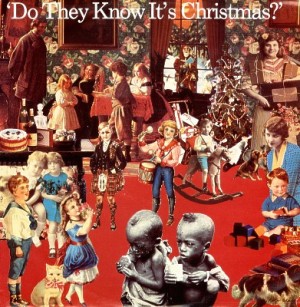
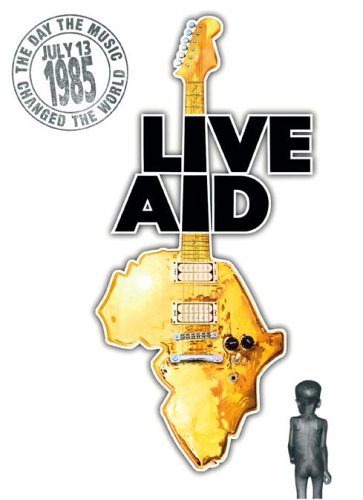
CrypticRock.com – It is really a wonderful thing, and wonderful to see that it is still going after all these years later.
Midge Ure – And it will do, we now have a problem with what to do with it when Bob and I are teetering on the edge in a few years’ time. We now have to hand the whole process to someone. There isn’t someone on the sidelines ready to take it on, so we have a problem looming in the not-too-distant future.
CrypticRock.com – Well hopefully you will find the right individuals who can take over the responsibility of it. My last question for you is pertaining to movies. CrypticRock.com covers music and Horror/Sci-Fi films. If you are a fan of either genre, what are some of your favorite films?
Midge Ure – Stephen King, who writes great Horror stories, has movies that have been made from his stories that tend to be dreadful, except for The Shining (1980). I remember touring in America with Ultravox, we decided that we weren’t staying in the usual Holiday Inns and stuff, we wanted to stay in lovely, old hotels. I saw The Shining when we were staying in these huge, big, empty hotels. Walking down the corridor at night with rooms on either side of you was a scary thing. I used to love Horror movies. I think I just get too anxious watching them these days, I can’t bring myself to go into a cinema and sit down to be petrified. My wife won’t go with me so what can I say?

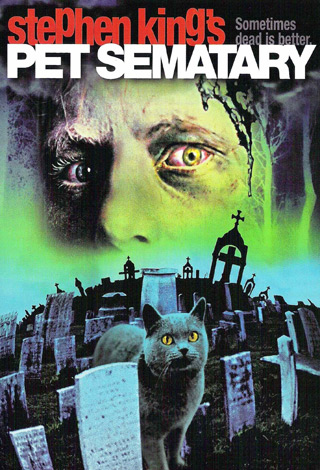
CrypticRock.com – The Shining is an all-time classic, and you are right, it is probably one of the only Stephen King movies that translated into a movie well. The other one I can think of that was decent was Pet Sematary (1989). Have you seen that one?
Midge Ure – I did, I saw it at Grauman’s Chinese Theater when I was touring in America. It was Los Angeles and I had a day off. I took my solo band out to see Pet Sematary. I had read the book and I thought, “Ok, let’s see how this works,” and it was a pretty good job. Again, both movies had a reasonable budget, a lot of the other movies that had been made were made for television movies or mini-series, so they couldn’t quite stand up.
